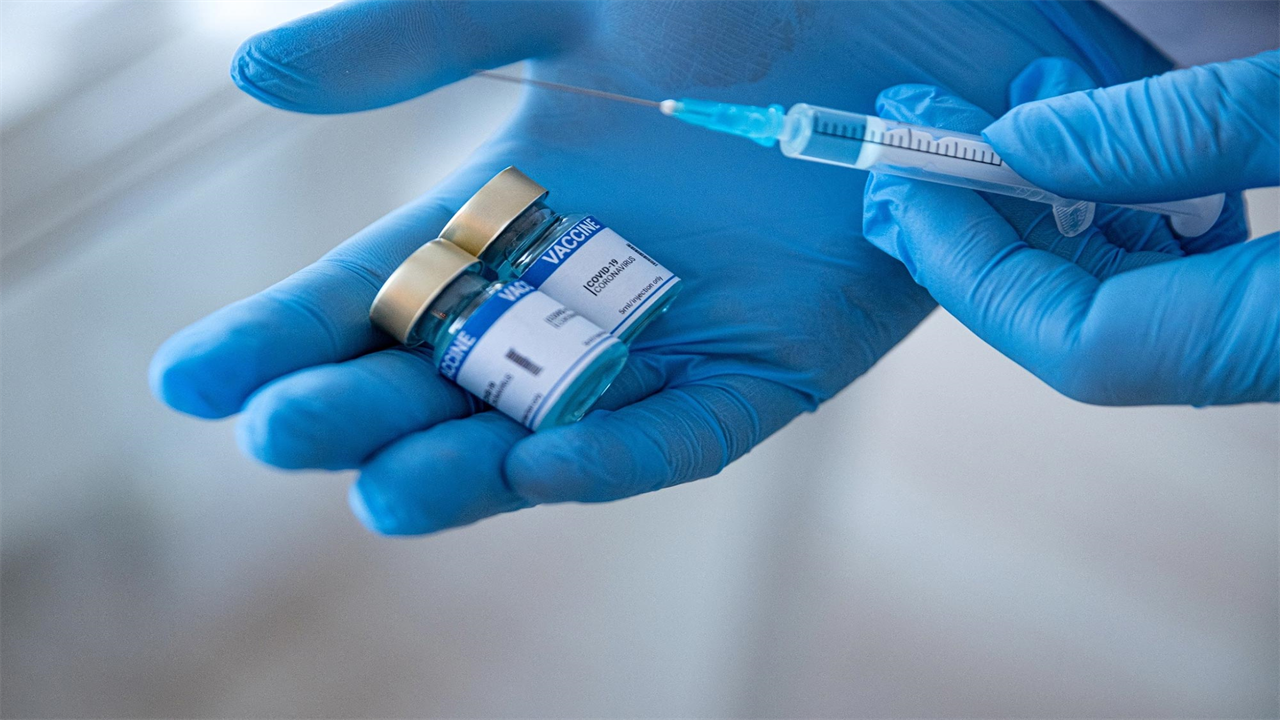COVID Vaccine Dosing “Mistake” Leads to Surprising Discovery
0 View
Share this Video
- Publish Date:
- 26 October, 2021
- Category:
- Covid
- Video License
- Standard License
- Imported From:
- Youtube
Tags

Study justifies a re-evaluation of current vaccine research protocols for SARS-CoV-2, other diseases.
A dosing error made during an AstraZeneca-University of Oxford COVID-19 vaccine trial has led to a new dosing finding in mice, a new Northwestern Medicine study reports.
During the AstraZeneca-Oxford trial, some human participants were mistakenly given a half dose for their first injection, followed by a full dose for their second injection. Paradoxically, the study showed that volunteers who received a lower dose of the first injection were better protected against COVID-19 than those who received two full doses.
However, it was not clear whether the improvement from the low-dose vaccine was due to the dose itself or to the fact that people who received the lower dose also had a longer time between the first and second injection, known as an extended scoop. . -Boost interval.
Scientists at Northwestern University Feinberg School of Medicine tested the effect of a SARS-CoV-2 vaccine prime dose in mice and found that an initial injection of a lower dose, followed by a full-dose booster injection, potency of a SARS-CoV-2 vaccine. The booster injection produced more antibodies and T cells in the mice, allowing them to develop a much more robust immune response against SARS-CoV-2, the study found.
The findings were recently published in the journal Science Immunology.
Study questions the idea of ’dose escalation’ in vaccine trials
Vaccine clinical trials use a method known as dose escalation, where one person gets a lower dose and gets a boost with the same lower dose; a second person gets a higher dose and gets a boost with that same higher dose, and so on.
“The idea is to make sure the vaccine is safe, so scientists use dose escalation to determine the ‘goldilocks zone’: what’s the minimum dose of vaccine you can give to someone while still getting a good immune response?” said lead author Pablo Penaloza-MacMaster, assistant professor of microbiology-immunology at Feinberg.
The Northwestern study did not use the AstraZeneca-Oxford vaccine, but instead used a similar vaccine: an adenovirus serotype 5 vaccine related to the China-developed CanSino and the Russia-developed Sputnik V vaccines. Penaloza-MacMaster said their ongoing studies are now investigating this dosing regimen in mRNA vaccines.
Why did the lower dose/standard dose work better?
In the AstraZeneca study, participants who received the full first dose had a boost about three to four weeks after the first injection, while those who received the lower dose had a much longer prime-boost interval. The Northwestern study replicated this extended prime-boost interval in mice and also reported that increasing the prime-boost interval improves the immune response.
Extending the time between the first and second injections also improved the SARS-CoV-2 vaccine.
“An extended prime boost interval allows the immune system to rest and mature in a way that the immune response can then expand more vigorously after a booster vaccination,” said Penaloza-MacMaster. “The longer you wait before boosting, the better that secondary immune response will be.”
However, this can be a tricky game, he said, because waiting longer to boost could increase a person’s susceptibility to getting the virus.
“With a pandemic, it’s ethically challenging to extend that prime-boost interval because you need people to be fully protected as quickly as possible,” Penaloza-MacMaster said. “But this approach may have its advantages in terms of improving the long-term durability and magnitude of immune responses, which could be useful not only for SARS-CoV-2 vaccines, but other vaccines as well.”
The team also saw similar positive effects from lowering vaccine doses with an experimental HIV vaccine based on an adenovirus vector, suggesting that these findings are generalizable to other vaccines.
Reference: “Fractionation of a COVID-19 Ad5 Vectorized Vaccine Enhances Virus-Specific Immunity” by Sarah Sanchez, Nicole Palacio, Tanushree Dangi, Thomas Ciucci, and Pablo Penaloza-MacMaster, October 14, 2021, Science Immunology.
DOI: 10.1126 / sciimmunol.abi8635
Other authors of this study are Sarah Sanchez, Nicole Palacio and Tanushree Dangi, members of the Penaloza-MacMaster lab at Northwestern University.
The study was funded by the National Institutes of Health (grant DP2 DA051912-01).










